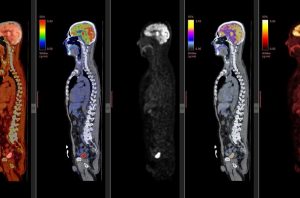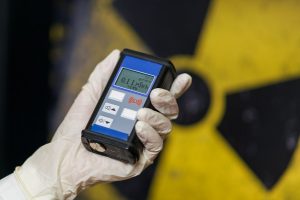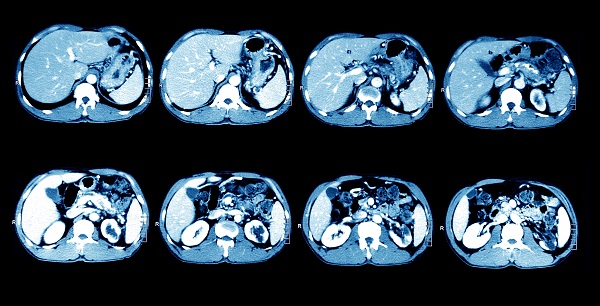OVERVIEW
Structure and Requirements
Study Plan
OVERVIEW
About the Program
The Master of Science in Medical Physics combines in-depth knowledge and practical experience to educate and train qualified medical physicists in the areas of diagnostic imaging, radiation therapy, nuclear medicine and radiation protection. The program aims at fulfilling the needs of the country for competent medical physics practitioners. Students will utilize modelling, computer simulation and experimental techniques as tools to analyze and understand different phenomena and processes. Graduates of the MSc will have acquired the advanced level of knowledge and experience to assume a career in hospitals, in industry and government, as well as continuing their studies to the Doctorate level.
To find out more about the scholarships offered by KU, please visit our scholarships page
Program Educational Objectives
The objectives of the MSc in Medical Physics program are to produce graduates who:
- Advance professionally and be recognized as leaders in their career.
- Apply their technical expertise to address the needs of society in critical, creative, ethical, and innovative manner.
- Further develop their knowledge and skills through graduate education and professional schools.
Learning Outcomes
MSc in Medical Physics graduates will be able to:
- Apply medical physics knowledge, including core medical physics concepts and topics relating to the methods and techniques of clinical practice and research for the prevention, diagnosis, and safe treatment of human disease.
- Solve medical physics problems individually and collaboratively involving the integration of knowledge including basic and applied physics, mathematics, biological and physics sciences; development of theoretical solutions; use of various concept representations, computational methods, simulations, and experimental tests.
- Demonstrate skills related to posing new questions and solving problems in research, clinical, and industrial settings, including problem solving, troubleshooting, experimental skills, coding and software use, data processing and analysis.
- Organize and communicate about scientific and technical concepts for different audiences and contexts using various and appropriate communication methods and modalities.
- Develop familiarity with basic workplace concepts, issues, practices, professional conduct, and life skills, including ethical conduct and actions that are required of medical physicists.
Career Opportunities in Medical Physics:
Medical Physics is an exciting and rapidly developing field, within which skilled professional are in high demand. Integrating physics, medicine and technology, medical physics is rich in opportunities for academic and clinical pursuit. KU’s master’s in medical physics program will offer career and research pathways for graduates in physical science, biophysics, biomedical engineering or equivalent, having substantial physics and mathematics components. The program will exploit student’s problem-solving abilities to critically evaluate and optimize the quality assurance of medical equipment.
The medical physics field encompasses an array of rewarding professions within which skill-shortage currently exist such as Radiation Oncology Physics, Medical Imaging Physics, Nuclear Medicine Physics, Radiation Safety and Health Physics, regulatory divisions of non-hospital institutions, power generation corporations and R&D divisions of private companies. There is an immediate need for medical physicists in UAE due to the construction of new cancer treatment centers and expansion of existing radiation oncology and medical imaging facilities and services. The need is expected to grow significantly in future due to technological advancements in medical diagnostic and treatment machines. Similar demand and growth are expected worldwide. A postgraduate qualification in medical physics is mandatory to become a certified practicing medical physicist in a developed country.
Some medical physicists conduct scientific research to answer previously unanswered questions by developing new techniques, tools and devices whereas others can pursue graduate studies and build careers in academia and government institutions. Many medical physicists are also involved in training future medical physicists, resident physicians (radiologists and radiation oncologists) and radiation/imaging technologists who operate various types of equipment used to perform diagnosis and treatment. Many medical physicists work with consulting firms or as private consultants for hospitals, clinician, healthcare industry and government institutions to regulate their radiation equipment usage.
Contact:
For questions or additional information about the MSc in Medical Physics program, please contact:
Structure and Requirements
Overall Program Structure
The MSc Medical Physics consists of a minimum 30 credit hours, distributed as follows: 21 credit hours of Program Core courses and 9 credit hours of master’s thesis. The components of the program are summarized in the table below:
|
Program Component
|
Credit Hours
|
|
Program Core
|
21
|
|
Master’s Thesis
|
9
|
|
Total
|
30
|
Program Requirements
Students seeking the degree of MSc in Medical Physics must successfully complete 30 credit hours as specified in the program requirements detailed below, with a minimum CGPA of 3.0.
|
MSc in Medical Physics Program Courses
|
|
|
Course Code
|
Course Name
|
Credit Hours
|
|
MEPH 620
|
Radiation Biology and Research Methods and Ethics
|
3
|
|
MEPH 630
|
Radiological Physics and Radiation Protection
|
3
|
|
MEPH 640
|
Physics of Radiotherapy (with Lab)
|
3
|
|
MEPH 650
|
Physics of Diagnostic Imaging (with Lab)
|
4
|
|
MEPH 660
|
Non-Ionizing Radiation Imaging
|
2
|
|
MEPH 680
|
Physics of Nuclear Medicine (with Lab)
|
3
|
|
MEPH 600
|
Physiological Systems
|
3
|
MEPH 699 Master’s Thesis (minimum 9 credit hours)
Students must complete a master’s thesis that involves creative, research-oriented work within the broad field of Medical Physics, under the direct supervision of a full-time medical physics faculty advisor and at least one other full-time faculty who acts as a co-advisor. The outcome of research should demonstrate the synthesis of information into knowledge in a form that may be used by others. The research findings must be documented in a formal thesis and defended successfully in a viva voice examination. Furthermore, the research should lead to publishable quality scholarly articles.
Typical full-time and part-time study plans for the MSc Medical Physics program are shown below.
|
Typical Study Plan for Full-Time Students
|
|
Semester 1
|
Semester 2
|
|
Year 1
|
• MEPH 630 Radiological Physics and Dosimetry + Laboratory
• MEPH 650 Physics of Diagnostic Imaging + Laboratory
• MEPH 620 Radiation Biology
|
• MDBS 602 Structural Organization of the Human Body + Laboratory
• MEPH 660 Non-ionizing Radiation Imaging
• MEPH 680 Physics of Nuclear Medicine + Laboratory
• MEPH 635 Research Methods and Ethics
|
|
Year 2
|
• MEPH 640 Physics of Radiotherapy +
Laboratory
• MEPH 670 Health Physics and Radiation Protection
• MEPH 665 Clinical Rotations
|
• MEPH 699 Medical Physics Master’s Thesis
|
|
Typical Study Plan for Part-Time Students
|
|
Semester 1
|
Semester 2
|
|
Year 1
|
• MEPH 630 Radiation Physics and Dosimetry + Laboratory
• MEPH 620 Radiation Biology
|
• MDBS 602 Structural Organization of the Human Body + Laboratory
• MEPH 635 Research Methods and Ethics
|
|
Year 2
|
• MEPH 650 Physics of Diagnostic Imaging + Laboratory
• MEPH 640 Physics of Radiotherapy + Laboratory
|
• MEPH 680 Physics of Nuclear Medicine + Laboratory
• MEPH 660 Non-ionizing Radiation Imaging
|
|
Year 3
|
• MEPH 665 Clinical Rotations
• MEPH 670 Health Physics and Radiation Protection
|
• MEPH 699 Medical Physics Master’s Thesis
|
|
Year 4
|
• MEPH 699 Medical Physics Master’s Thesis
|
|
Applicants seeking admission to a Master’s degree program at Khalifa University must meet the following minimum criteria in order for the application to be considered:
- Minimum level of English proficiency in the form of an iBT TOEFL (internet-based test) score of 91 or equivalent, an overall academic IELTS score of 6.5, or an EmSAT English score of 1550;
- Minimum quantitative score of 150 in the general Graduate Record Examination (GRE) for all programs, with the exception of Master of Engineering in Health, Safety and Environment Engineering and the Master of Arts in International and Civil Security, where a minimum threshold is not set. Applicants for all programs should attempt all three sections of the GRE.
- Statement of Purpose (500 – 1,000 words)
- Minimum of two referee recommendations
- Admission interview
In addition to the above requirements, applicants to the Master’s in Medical Physics program must meet the following requirements:
- Completed BSc degree in Physics (or equivalent) with a minimum Cumulative Grade Point Average (CGPA) of 3.0 out of 4.0 (75%), or equivalent, from an accredited institution.
Students with Bachelor’s degrees from other branches of science or engineering should take deficiency courses in physics (including Modern Physics, Quantum Physics and Instrumentation Physics) and Math (including Linear Algebra, Differential Equations and Statistics). Interested students from majors other than physics should complete all required physics and math courses before applying for admission
Study Plan
Students must consult with their respective advisors on the courses that they will enroll in, the required pre-requisites, and the thesis topic selection. Full-time graduate students must register for 9 to 12 credits, including thesis credits, during a regular semester (Fall and Spring) and a maximum of 6 credits during a Summer term. In the case of part-time students, the credit load is normally 6 credits during a regular semester as well as the summer term.
Students can only register for thesis credits after successfully completing a minimum of 9 credits of the core courses of the master’s program they are enrolled in. It is to be noted that the minimum pass grade for graduate courses is a “C” letter grade. Students should consult the Graduate Catalog to learn about the graduate programs, the grading system, graduation requirements, and other pertinent matters.


